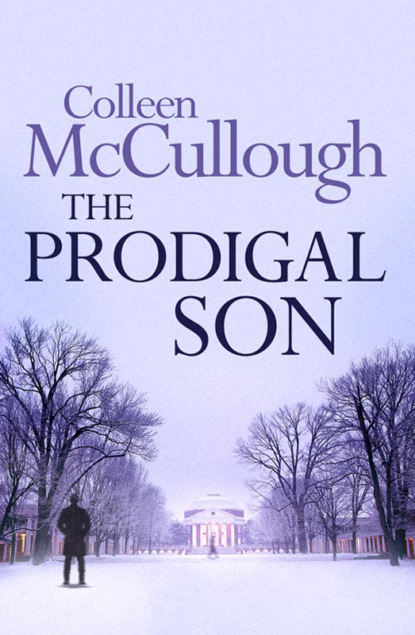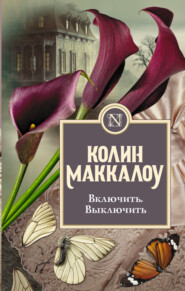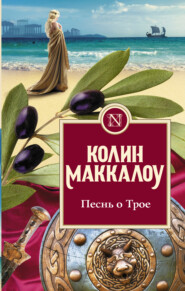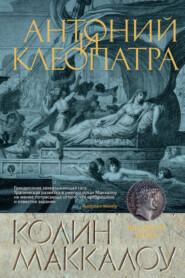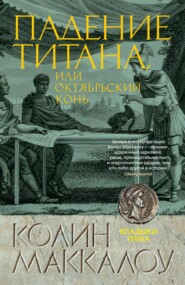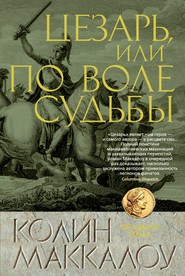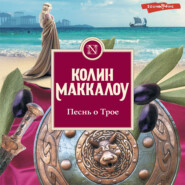По всем вопросам обращайтесь на: info@litportal.ru
(©) 2003-2024.
✖
The Prodigal Son
Автор
Год написания книги
2018
Настройки чтения
Размер шрифта
Высота строк
Поля
“For which I have you to thank. I can pay you back for my operation at last, old friend.”
“Don’t even try!” John frowned. “Millie’s still too thin.”
“That’s her nature, she’s an ectomorph.” The big, luminous green eyes, so strange in Jim Hunter’s darkness, swam with tears. “God, it is good to see you! Over six years!”
John hugged him hard, a strong yet manly embrace that Jim returned, then, emerging, saw Dr. Al Markoff glancing at his watch.
“Another hour, and I’ll be able to grab my wife and split. Davina’s hard to take tonight,” Markoff said, leading the way. “Long lost sons crawling out of the woodwork aren’t in her line, no offense, John, but the forestry background makes it an ideal metaphor.” He glanced at his watch again. “Not bad, not bad. It’s just ten-thirty. Muse and I will be sawing wood in less than an hour, ha ha ha. Punsters can’t help themselves, John.”
A little to John’s surprise (though his ego wasn’t bruised), Max put Jim Hunter in what was clearly the place of honor in his den: a big, padded, crimson leather wing chair. The whole room was crimson leather, gilt-adorned books, walnut furniture and leaded windows. Artificial. Davina, he would have been prepared to bet.
He drew up a straight chair in front of but to one side of Jim’s wing chair, hardly curious about Jim’s significance: it would all come out in time, and he had loads of time. Max had gone into a huddle with Val and Ivan, each flourishing a large cigar and a snifter of X-O cognac; the Tunbulls don’t skimp on life’s little niceties, he thought, and they love to huddle. Dr. Al drew up another straight chair on Jim’s other side, and the den settled into two separate conversations.
“Are you the Tunbull family physician, Al?” John asked.
“Lord, no! I’m a pathologist specializing in hematology,” Markoff said affably, “which won’t mean any more to you than Douglas fir does to me. Now Jim’s RNA I find fascinating.”
“Is this yours and Muse’s first child?” he pressed.
Markoff guffawed. “I wish! This, my bachelor friend, is the forties accident. We have two boys in their teens, but Muse is too scatty to throw geniuses, so they’re horribly ordinary.”
“I think you’d be a pretty cool father,” John said, enjoying the man’s easygoing humor as he expanded on the theme of the accidental forties pregnancy; while he talked, John almost forgot what he suspected was going on between Max, Val and Ivan: the non-depletion of Ivan’s share of the family business and estate.
He felt suddenly very tired. The meal had been long and his wine glass refilled too often, something he disliked. To gird up his loins for this meeting had taken courage, for there was much of his mother in John Hall, who shrank from confrontations. After Jim and Dr. Al moved on to nucleic acids, John managed a surreptitious peek at his watch: 11 p.m. They had been in the den for a half hour, which meant, according to Dr. Al, another half hour to go before he stood any chance of escaping. Max was gazing across at him with real love and concern, but how could he get to first base with a father shackled to a harpy like Davina? She would be rooting for baby Alexis, and why not?
Sweat was stinging his eyes; funny, he hadn’t noticed until now how hot the room was. Rather clumsily he groped in his trousers side pocket for his handkerchief, found it, yet couldn’t seem to pull it out.
“Hot,” he mumbled, running a finger around the inside of his collar. The handkerchief finally came free; he held it to his brow and mopped. “Anyone else hot?” he asked.
“Some,” said Jim, taking John’s brandy snifter from him. “It’s the end of the evening, why not take off your tie? No one will mind, I’m sure.”
“Of course take it off, John,” said Max, moving to the dial of the thermostat; the response of cooler air was immediate.
His lips felt numb; he licked at them. “Numb,” he said.
Jim had taken the tie off, loosened the collar. “Better?”
“Not—really,” he managed.
He couldn’t seem to draw air into his lungs properly, and gasped. Sweet cool air flooded in; he gasped again, but this time it was harder to suck in a breath. He swayed on the chair.
“Get him on the floor, guys,” he heard Dr. Al say, then felt himself laid supine, a loosely rolled coat behind his head. Markoff was ripping open the buttons on his shirt and barking at someone: “Call an ambulance—resuscitation emergency. Max, tell Muse to give you my bag.”
Nauseated, he retched, tried to vomit, but nothing came up, and now he just felt sick, didn’t have the strength to retch. His teeth chattered, he was appalled to find his whole body invaded by a fine tremor. Then came an almighty, convulsive jerk, as if it were happening to someone else—why was he so aware of everything that was going on? Not in a disembodied way—that he could have borne, to hover looking down on himself. But still to be inside himself going through it was awful!
All that became as nothing compared to his struggle to breathe, an ever-increasing impossibility that flung him into a terror he had no way to show beyond the look in his eyes. I am dying, but I can’t tell them! They don’t know, they’ll let me die! I need air, I need air! Air! Air!
“Heartbeat’s weak rather than suspiciously irregular, it isn’t a primary cardiac catastrophe,” Dr. Al was saying, “but his airway is still patent. Shouldn’t have this gear with me, except that I borrowed it for a refresher course in emergency medicine … Gotta keep up with the times … I’ll intubate and bag breathe.”
And while he talked he worked, one of those odd people who like to do both simultaneously. With the first puff of oxygen into his lungs, John knew through his mania that he could not have had a better man treating him if it had gone down in the ER itself. For perhaps six or seven blissful breaths he thought he’d beaten whatever it was, but then the gas bag and the strong pressure on it couldn’t force his air passages to inflate, even passively.
Inside his head he was screaming, screaming, screaming a blind, utter panic. No thoughts of the life he had lived or any life to come intruded for as long as the width of a photon; no heaven, no hell, just the horrifying presence of imminent death, and he so alive, awake, forced to endure to the last, bitterest … In his eyes an electrified terror, in his mind a scream.
John Hall died eleven minutes after he started feeling hot. Dr. Al Markoff knelt to one side of him fighting to keep him alive, Dr. Jim Hunter knelt to his other side holding his hand for comfort. But life was gone, and of comfort there was none.
PART ONE
From
THURSDAY, JANUARY 2, 1969
until
WEDNESDAY, JANUARY 8, 1969
THURSDAY, JANUARY 2, 1969
“Daddy, what’s the procedure when I’m missing a toxin?”
Patrick O’Donnell’s startled blue eyes flew to his daughter’s face, expecting to see it laughing at having successfully pulled Daddy’s leg. But it was frowning, troubled. He gave her a mug of coffee. “It depends, honey,” he said calmly. “What toxin?”
“A really nasty one—tetrodotoxin.”
Holloman County’s Medical Examiner looked blank. “You’ll have to be more specific, Millie. I’ve never heard of it.”
“It’s a neurotoxin that blocks nerve transmission by acting on the pores of the voltage-gated, fast sodium channels of the cell membrane—or, in simpler words, it shuts the nervous system down. Very nasty! That’s what makes it so interesting experimentally, though I’m not interested in it per se. I use it as a tool.” Her blue eyes, so like his, gazed at him imploringly.
“Where did you get it from, Millie?”
“I isolated it myself from its source—the blowfish. Such a cute little critter! Looks like a puppy you’d just love to hug to death. But don’t eat it, especially its liver.” She was perking up, sipping the coffee with enjoyment now. “How do you manage to make a good brew in this godawful building? Carmine’s coffee sucks.”
“I pay for it myself and severely limit those invited to drink it. Okay, you’ve jogged my memory cells. I have heard of tetrodotoxin, but only in papers, and in passing. So you actually isolated it yourself?”
“Yes.” She stopped again.
“I’ll do a Carmine: expatiate.”
“Well, I had a tank of blowfish, and it seemed a shame to waste all those livers and other rich bits, so I kept on going and wound up with about a gram of it. If taken by mouth, enough to kill ten heavyweight boxers. When I finished my experimental run I sealed the six hundred milligrams I had left over in glass ampoules, one hundred milligrams to each, slapped a poison sticker on the beaker holding the six ampoules, and put it in the back of my refrigerator with the three-molar KC1 and stuff,” said Millie.
“Don’t you lock the refrigerator?”
“Why? It’s mine, and my little lab. My grant doesn’t run to a technician—I’m not Jim, surrounded by acolytes.” She held out her mug for more coffee. “I lock my lab door when I’m not in it. I’m as paranoid as any other researcher, I don’t advertise my work. And I’m post-doctoral, so there’s no thesis adviser looking over my shoulder. I would have thought that no one even knew I had any tetrodotoxin.” Her face cleared, grew soft. “Except for Jim, that is. I mentioned it in passing to him, but he’s not into neurotoxins. His idea of soup is E. coli.”
“Any idea when it disappeared, sweetheart?”
“During the last week. I did a stocktake of my refrigerator on Christmas Eve, and the beaker was there. When I did another stocktake this morning, no beaker anywhere—and believe me, Dad, I looked high and low. The thing is, I don’t know what to do about losing it. It didn’t seem like something Dean Werther is equipped to deal with. I thought of you.”
“Reporting to me is fine, Millie. I’ll notify Carmine, but only as a courtesy. It can’t be equated with someone’s stealing a jar of potassium cyanide—that would galvanize everybody.” Patrick gave a rueful grin. “However, my girl, it’s time to shut the stable door. Put a lock on your refrigerator and make sure you have the only key.”





